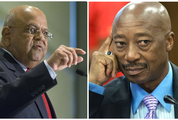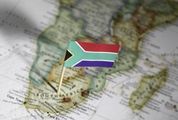Special war crimes court in Dakar is new approach for AU
by Marlise Simons,
2016-01-04 06:26:46.0
THE witness, a slight, middle-aged woman, wanted to tell the court about something that had happened to her, something terrible that she said she had kept to herself for more than 30 years. As she faced the judges, she was just steps away from the man on trial, Hissène Habré, once Chad’s all-powerful and much-feared president.
In an even tone, Khadidja Zidane told of being tortured in a prison on the grounds of the presidential compound in N’Djamena, Chad’s capital. But when Zidane moved on to talk about sexual abuse, the chief judge quickly offered to hear her testimony in private.
"No, I will not hide anything," Zidane said. Then in a firm voice, she blurted out: "Hissène Habré raped me four times."
Zidane was one of 98 witnesses who have appeared in a courtroom in Dakar, Senegal, where a special chamber is trying Habré for crimes against humanity, war crimes and torture committed during his presidency from 1982 to 1990.
For the past three months, harrowing stories have been told by men and women in their 50s and 60s — people, such as Zidane, who were brought from Chad to testify about their ordeals or about their relatives who disappeared at the hands of the government.
According to a Chadian truth commission, the government killed more than 40,000 people deemed enemies of the state or suspicious.
Some witnesses said they nearly suffocated in cells too crowded to lie down in, and that they almost died from lack of food. They described being dunked in waste, tortured with sticks and wires, being raped and beaten, and watching fellow inmates die from abuse.
Prosecutors have presented secret police archives that recorded the names of 12,321 prisoners, interrogation reports and the deaths in detention of more than 1,200 people. François Serres, Habré’s French lawyer, has dismissed the records as "fakes".
The proceedings against Habré, which are expected to end this month, have been video-streamed from the court in Dakar, where he remains the only defendant.
The court, known as the Extraordinary African Chambers, was created for Habré. Unusually, it applies the laws of Senegal to judge the former head of state of a country more than 3,000km away. The only comparable case in Africa involved Charles Taylor, the former president of Liberia, who was convicted by a United Nations-backed tribunal for crimes committed in Sierra Leone.
Yet what perhaps most distinguishes the special court in Dakar is that it was created with political support from the African Union (AU), which has long complained that Africans were being singled out for prosecution by the International Criminal Court in The Hague, the Netherlands. After much legal wrangling, it was the AU that asked Senegal to try Habré "in the name of Africa".
The court’s $11m budget comes from donors including the US and France, the erstwhile Habré allies, and one-third is paid by the government of Chad, where President Idriss Déby has been in office for the 25 years since he overthrew Habré.
For Habré’s accusers, that the trial is taking place at all has been remarkable. The former strongman had lived in exile in Senegal since 1990, and he was indicted there in 2000. Yet it took more than a decade before Habré was arrested.
The former president has not uttered a word in court since the trial’s first two days, when he screamed insults at the judges and struggled with his guards.
Since then, Habré has been forced to attend every session and has sat motionless, his face largely concealed by a turban and dark glasses. At the end of every session, he raises clasped hands to his family in court, who burst into applause.
New York Times

Former Chadian president Hissène Habré is facing charges of crimes against humanity, war crimes and torture committed from 1982 to 1990. Picture: REUTERS/ALIOU MBAYE
THE witness, a slight, middle-aged woman, wanted to tell the court about something that had happened to her, something terrible that she said she had kept to herself for more than 30 years. As she faced the judges, she was just steps away from the man on trial, Hissène Habré, once Chad’s all-powerful and much-feared president.
In an even tone, Khadidja Zidane told of being tortured in a prison on the grounds of the presidential compound in N’Djamena, Chad’s capital. But when Zidane moved on to talk about sexual abuse, the chief judge quickly offered to hear her testimony in private.
"No, I will not hide anything," Zidane said. Then in a firm voice, she blurted out: "Hissène Habré raped me four times."
Zidane was one of 98 witnesses who have appeared in a courtroom in Dakar, Senegal, where a special chamber is trying Habré for crimes against humanity, war crimes and torture committed during his presidency from 1982 to 1990.
For the past three months, harrowing stories have been told by men and women in their 50s and 60s — people, such as Zidane, who were brought from Chad to testify about their ordeals or about their relatives who disappeared at the hands of the government.
According to a Chadian truth commission, the government killed more than 40,000 people deemed enemies of the state or suspicious.
Some witnesses said they nearly suffocated in cells too crowded to lie down in, and that they almost died from lack of food. They described being dunked in waste, tortured with sticks and wires, being raped and beaten, and watching fellow inmates die from abuse.
Prosecutors have presented secret police archives that recorded the names of 12,321 prisoners, interrogation reports and the deaths in detention of more than 1,200 people. François Serres, Habré’s French lawyer, has dismissed the records as "fakes".
The proceedings against Habré, which are expected to end this month, have been video-streamed from the court in Dakar, where he remains the only defendant.
The court, known as the Extraordinary African Chambers, was created for Habré. Unusually, it applies the laws of Senegal to judge the former head of state of a country more than 3,000km away. The only comparable case in Africa involved Charles Taylor, the former president of Liberia, who was convicted by a United Nations-backed tribunal for crimes committed in Sierra Leone.
Yet what perhaps most distinguishes the special court in Dakar is that it was created with political support from the African Union (AU), which has long complained that Africans were being singled out for prosecution by the International Criminal Court in The Hague, the Netherlands. After much legal wrangling, it was the AU that asked Senegal to try Habré "in the name of Africa".
The court’s $11m budget comes from donors including the US and France, the erstwhile Habré allies, and one-third is paid by the government of Chad, where President Idriss Déby has been in office for the 25 years since he overthrew Habré.
For Habré’s accusers, that the trial is taking place at all has been remarkable. The former strongman had lived in exile in Senegal since 1990, and he was indicted there in 2000. Yet it took more than a decade before Habré was arrested.
The former president has not uttered a word in court since the trial’s first two days, when he screamed insults at the judges and struggled with his guards.
Since then, Habré has been forced to attend every session and has sat motionless, his face largely concealed by a turban and dark glasses. At the end of every session, he raises clasped hands to his family in court, who burst into applause.
New York Times



























Change: 1.61%
Change: 1.50%
Change: 1.82%
Change: 0.74%
Change: 4.50%
Data supplied by Profile Data
Change: -0.27%
Change: 0.26%
Change: 1.61%
Change: 0.00%
Change: 0.35%
Data supplied by Profile Data
Change: -0.28%
Change: -0.32%
Change: -0.30%
Change: -0.15%
Change: 0.00%
Data supplied by Profile Data
Change: 1.58%
Change: 1.07%
Change: 1.14%
Change: 3.88%
Change: 0.24%
Data supplied by Profile Data